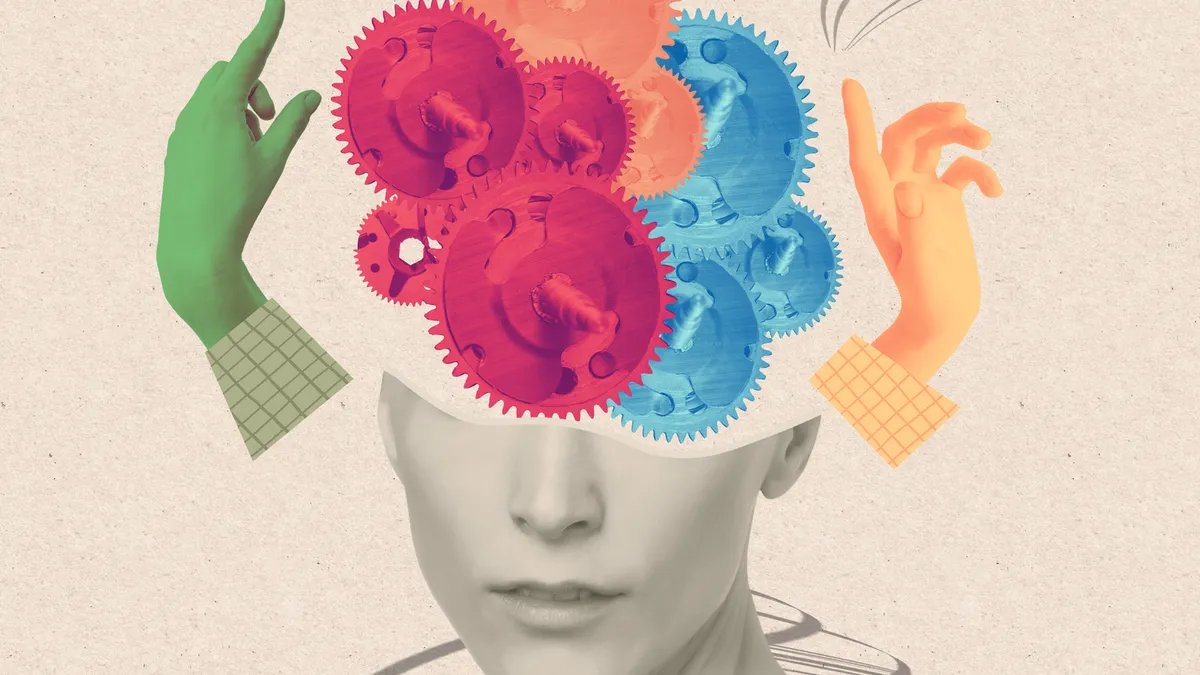When Dr. Husseini Manji was developing the first-in-class depression medication Spravato at Johnson & Johnson he encountered plenty of naysayers.
“A lot of people didn’t think it would work,” the adjunct professor of psychiatry at Yale University and former global therapeutic head of neuroscience at J&J recalled. “I felt confident that if we did it correctly, the efficacy would carry the day.”

The esketamine-based nasal spray ultimately won FDA approval in 2019, delivering the depression space its first new medication in decades. Spravato also offered an option that could provide more rapid treatment than the four to six weeks selective serotonin reuptake inhibitors, depression’s go-to drugs, usually take to kick in. Although Spravato sales got off to a sluggish start, the drug is now poised for blockbuster status.
And the Spravato breakthrough is just the tip of what’s to come, Manji said.
After being abandoned by Big Pharma, psychiatric drug development is undergoing a renaissance with researchers throwing scientific weight behind a range of new targets. Over 160 medications for mental health conditions are moving through the clinic, according to a report released by PhRMA last year, including about 50 candidates for depression.
Underscoring these efforts is a shift in mindset that psychiatric conditions should be broken down into precise diagnoses and treated with more nuanced drugs.
“The more we can refine our population and target them with a precise mechanism, that is the best way,” Manji said.
There have been setbacks, however. Alto Neurosciences reported in late October that its precision medicine candidate for major depression disorder failed to beat a placebo in a mid-stage trial. The study included 301 adults divided into cohorts determined by the presence of biomarkers connected to memory loss.
The drug, ALTO-100, is still being tested in bipolar disorder, and data from that phase 2b trial is expected in 2026, Alto’s CEO, Dr. Amit Etkin, told PharmaVoice via email. And the company is still evaluating the results in MDD.
“The Alto team is analyzing the robust data from the trial’s full dataset and plans to share more when this is available,” Etkin said.
Despite those stumbles, Manji is still optimistic about the biomarker approach in depression and maintained that other up-and-coming strategies could deliver the next dogma-smashing drug. Here are some of the precision approaches emerging in the space.
The orexin effect
Orexins are busy neurotransmitters in the brain that play a role in a wide range of functions including mood, appetite, the reward system and, importantly, wakefulness. Insufficient orexin has been linked to narcolepsy. But overstimulated orexin receptors can cause insomnia and hyperarousal.
“Investigators have shown that if the orexin system doesn’t go down … you turn on the limbic system with the fight or flight response, which starts our primitive brain,” Manji said. “In many of these psychiatric illnesses, that system is just on and on and on, which causes a lot of wear and tear in your system and a higher level of the stress hormone cortisol.”
“The more we can refine our population and target them with a precise mechanism, that is the best way."

Dr. Husseini Manji
Adjunct professor of psychiatry, Yale University
J&J is targeting this link with the investigational drug seltorexant, a selective orexin-2 receptor antagonist. The company posted positive topline results this year from a phase 3 trial testing the potential first-in-class drug as an adjunctive treatment for insomnia in patients with MDD. In the results, J&J reported the drug improved depression and insomnia symptoms when compared to a placebo.
The company forecasted seltorexant could reach peak sales as high as $5 billion. Although it shelved seltorexant as a possible Alzheimer’s disease candidate last month as part of a wider pipeline restructuring, its blockbuster sales forecasts for the treatment were based on its potential in depression.
New receptor targets
As drugmakers look beyond serotonin, they’re setting their sights on receptors linked to depression symptoms.
Neurocrine Biosciences reported positive topline data in April for a drug candidate that modulates AMPA, which has been linked to depression symptoms. Patients who took a daily dose of Neurocrine’s AMPA-targeting candidate, dubbed NBI-1065845, outperformed a placebo and produced statistically significant improvements on a common depression scale. Neurocrine picked up the candidate from Takeda Pharmaceuticals in 2020 as part of a psychiatry-focused deal worth up to $2 billion.
The kappa opioid receptor has also become a hot target in psychiatric drug development for conditions including schizophrenia and depression. Because KOR has been tied to the reward circuitry, emerging treatments modulate the receptor and improve the regulation of neurotransmitters like dopamine.
The hypothesis is being put to the test by Neumora Therapeutics, which launched a phase 3 program for its KOR antagonist navacaprant last year. The late-stage push came after the drug demonstrated positive results in a phase 2 trial of patients with moderate to severe depression.
Neumora anticipates initial results from the first of its three late-stage trials in the fourth quarter of this year.
The company isn’t alone in the KOR space, however. J&J is also in phase 3 with a KOR antagonist called aticaprant that’s generated positive results for MDD in the clinic. J&J, which is looking to grow its prowess in psychiatry, pegged aticaprant as a potential blockbuster in a presentation last year.
The inflammation link
A growing body of evidence has named inflammation as a key culprit behind a range of neurological disorders, from multiple sclerosis to Alzheimer’s. Research co-authored by Manji and published in 2022 evaluated whether “immune activation” could be driving depression symptoms as well.
In their analysis, Manji and his fellow researchers evaluated clinical trial datasets for drugs being tested in autoimmune diseases and ultimately found improvements in depression symptoms — even among non-responders for the autoimmune disease.
“We wanted to make sure the effect was not just a response from people feeling better in general,” Manji explained.
However, clinical testing of anti-inflammatory agents in psychiatry is still in early stages.
Researchers have identified one receptor — P2X7 — as a promising therapeutic target to combat depression by reducing inflammation. J&J tested a P2X7 antagonist in a phase 2 trial for bipolar disorder, but the drug was missing from the pipeline in its October earnings report.



















